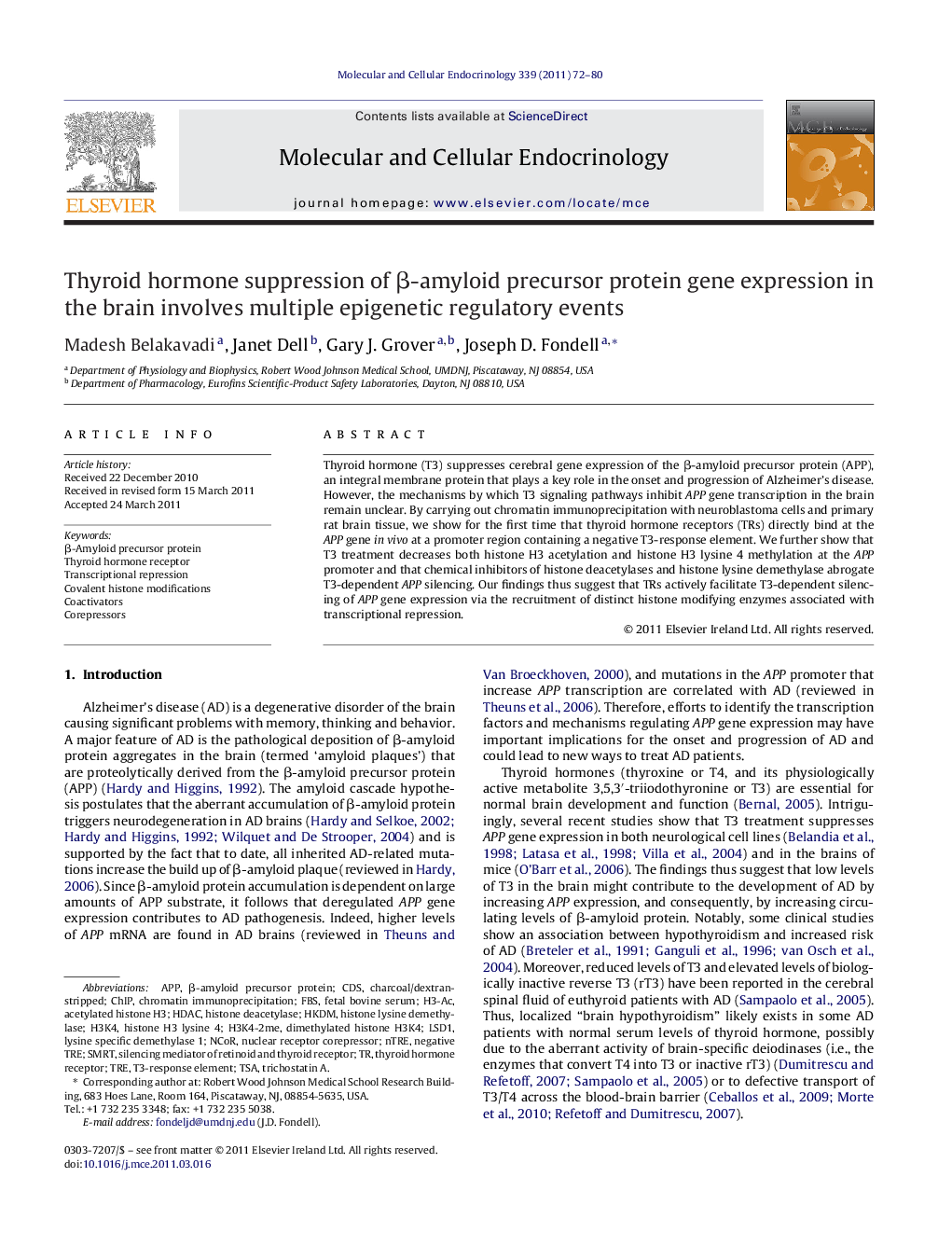| Article ID | Journal | Published Year | Pages | File Type |
|---|---|---|---|---|
| 8477808 | Molecular and Cellular Endocrinology | 2011 | 9 Pages |
Abstract
Thyroid hormone (T3) suppresses cerebral gene expression of the β-amyloid precursor protein (APP), an integral membrane protein that plays a key role in the onset and progression of Alzheimer's disease. However, the mechanisms by which T3 signaling pathways inhibit APP gene transcription in the brain remain unclear. By carrying out chromatin immunoprecipitation with neuroblastoma cells and primary rat brain tissue, we show for the first time that thyroid hormone receptors (TRs) directly bind at the APP gene in vivo at a promoter region containing a negative T3-response element. We further show that T3 treatment decreases both histone H3 acetylation and histone H3 lysine 4 methylation at the APP promoter and that chemical inhibitors of histone deacetylases and histone lysine demethylase abrogate T3-dependent APP silencing. Our findings thus suggest that TRs actively facilitate T3-dependent silencing of APP gene expression via the recruitment of distinct histone modifying enzymes associated with transcriptional repression.
Keywords
acetylated histone H3NCoRhistone H3 lysine 4TSACorepressorsHDACcoactivatorsAPPSMRTH3K4FBSLSD1chromatin immunoprecipitationTrichostatin Alysine specific demethylase 1fetal bovine serumTranscriptional repressionTREnuclear receptor corepressorhistone deacetylaseHistone lysine demethylaseβ-amyloid precursor proteinCHiPCdSthyroid hormone receptor
Related Topics
Life Sciences
Biochemistry, Genetics and Molecular Biology
Cell Biology
Authors
Madesh Belakavadi, Janet Dell, Gary J. Grover, Joseph D. Fondell,
